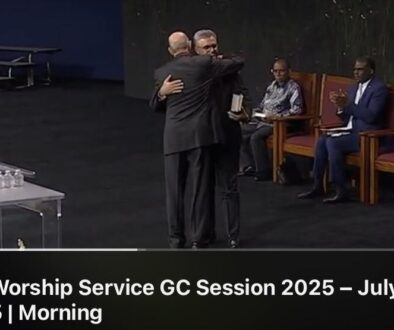The Atlantic: “Why Seventh Day Adventists Revere Isaac Newton”
by AT News Team
The noted literary magazine, The Atlantic, has published an article this week on its web site by Alan Jacobs, a professor at Wheaton College, connecting the great scientist Isaac Newton with the Baptist evangelist who founded the Adventist movement in the 19th century, William Miller. “Miller’s memoirs record his great debt to Newton and he named one of his ten children Isaac Newton Miller,” Jacobs writes.
“Newton was one of the first great Adventists … almost exactly one hundred years” before the Millerite revival. The famous economist John Maynard Keynes purchased a batch of Newton’s unpublished manuscripts in 1936 at an auction at Sotheby’s and was surprised to find “the great man’s obsession with biblical prophecy, especially the book of Daniel, a close reading of which had convinced Newton that he world would end in 2060 [with] the Second Advent of Jesus Christ. And he believed he had discovered this date just as surely as he had discovered … what we now call calculus.”
Newton discovered gravity and launched the modern era, “the whole scientific outlook as we know it,” Jacobs introduce his short essay. “This is the standard narrative about Newton, but it’s not the whole story. As much as today’s scientists celebrate Newton, their reverence is matched by that of a very different group: the Seventh-Day [sic] Adventist Church.” The article is illustrated with photo-reproductions of one of Newton’s manuscripts and Miller’s prophecy chart.
Professor Jacobs might be surprised to learn that this story is very likely unknown to most Seventh-day Adventists and the name of Isaac Newton is almost never mentioned in Adventist churches in connection with Bible prophecy or the Second Coming. It does reveal the linkage between Adventist theology and modernity which, although very strong, is largely unremarked by Adventists.
The article is available online at: https://www.theatlantic.com/technology/archive/2012/06/why-seventh-day-adventists-revere-isaac-newton/258635/



